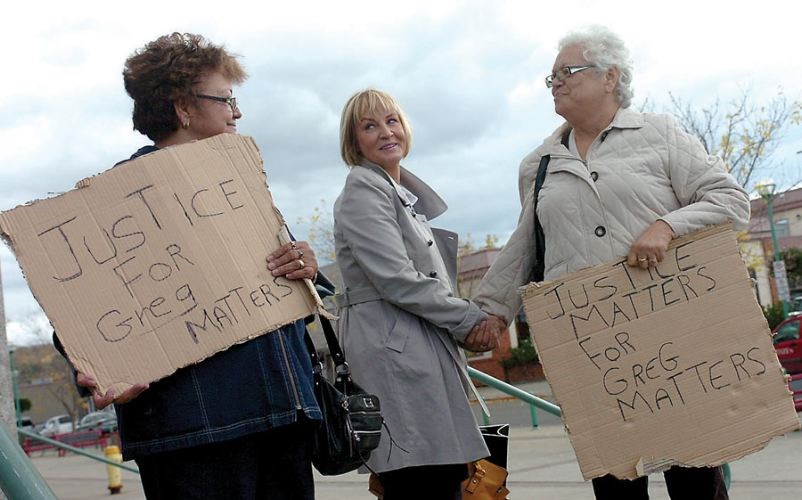An expert in police use-of-force cast doubt on turning to so-called "third-party intermediaries" to help safely arrest someone suffering from mental health issues at the coroners' inquest into the death of Greg Matters on Thursday.
John McKay, a retired member of the Vancouver Police Department who deployed emergency response teams to deal with such people in the Downtown Eastside said calling in someone believed to be in a position of trust is a "delicate issue" with "high risk, high gain."
"Often third-party intermediaries will tell the negotiator that 'listen, this guy will listen to me, I have a great relationship,'" McKay said. "Well, what happens is we don't know at this point in time what the subject's view of the relationship is with the third-party intermediary.
"So the general feeling for us is, even if the person is paranoid and afraid, it's better for us in most circumstances to build a relationship out of nothing than it is to bring someone in who says they have a great relationship but the subject doesn't have that same view."
McKay's comments came a day after Matters' psychiatrist, Dr. Greg Passey, said he was certain he could have talked the Canadian military veteran down from a standoff with RCMP if he had been given the chance.
A member of the RCMP's emergency response team shot and killed Matters on the evening of Sept. 10, 2012 after he approached another member while brandishing a hatchet during a standoff at the family farm in Pineview. A 15-year veteran of the Canadian military who was a peacekeeper, Matters suffered from post-traumatic stress disorder.
McKay said TPI's were used twice during his time at the VPD, both times successfully. But he also said the candidates were "very well researched" by police. Moreover, rather than talking to the subject directly, they either spoke from a script with the negotiator standing by or had their voice recorded, "saying something like 'Hi, this is your mother, this your sister, this is doctor Smith, the police are here, you're going to be o.k., just come on out,' and you play it over and over again.
"Because the worst thing that can happen is you've brought this third-party intermediary up and they go off-track and they cause an unintended outcome and it turns into a bigger mess than you've already had."
On Wednesday, Passey said a Prince George RCMP member did contact him by phone on Sept. 10, 2012 but rather than inviting him to talk to Matters, she asked questions about his patient. As they were discussing strategies, she then said it looked like Matters had agreed to surrender and hung up. The Matters family has also said Matters' mother had tried to get in contact with her son but was arrested by the RCMP and taken to the detachment in Prince George.
McKay was more supportive of establishing a pool of psychologists or mental health professionals that RCMP could reach in short order and bring to a scene when they're needed.
"This issue of dealing with people in crisis is not going to go away for us or anybody else," McKay said. "And so, we need as much help was we can from all the sources we can get to assess where we're at and the subject is at with themselves."
MacKay was also highly critical of the decision to close down institutional care for mental health patients in the province, saying the "closer-to-home" strategy has not worked and there is now no place for patients to go for the short, medium or long term. Matters was living with his mother on the family's Pinko Road farm at the time of his death.
The inquest, which drew more than 50 people Thursday to the Prince George courthouse, continues today, 9 a.m. start.



